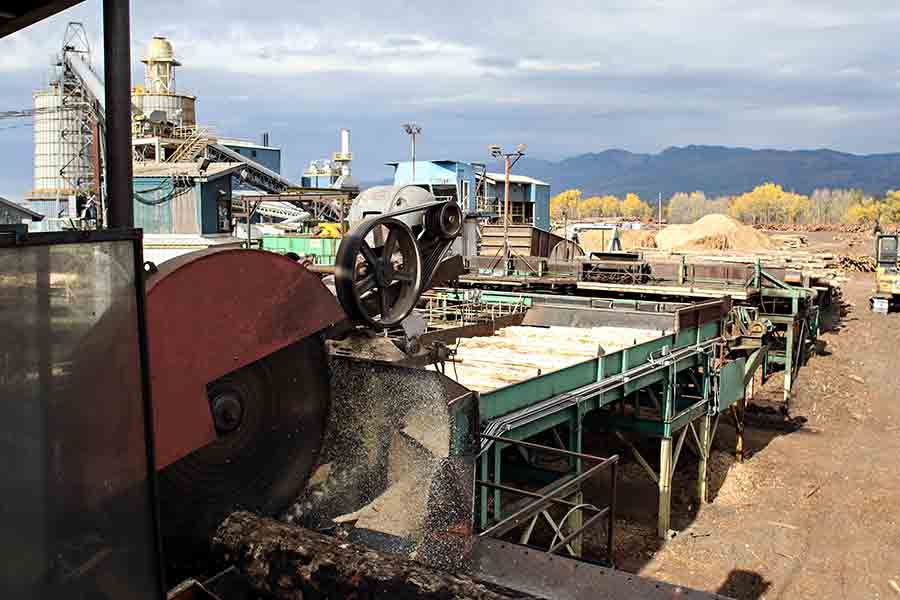The U.S. timber industry scored a win on April 9 in the decades-long battle with Canada over softwood lumber, after the World Trade Organization ruled in its favor.
On April 9, the WTO decided that the United States Department of Commerce had done the correct calculations when it determined anti-dumping duties on Canadian softwood lumber.
“It’s a victory for the United States and the forest products industry,” said Chuck Roady, general manager of F.H. Stoltze Land and Lumber, as well as the president of the Montana Wood Products Association. “It was great to see an excellent decision on our part, because the U.S. rarely prevails in the WTO.”
Softwood lumber has been the subject of an enduring trade dispute between the two countries, and the most recent Softwood Lumber Agreement (SLA) lapsed in 2016 after 10 years.
The roots of the dispute come down to two different forms of government having two different methods of lumber harvest. Canada’s provincial government owns the majority of timberlands that provide trees to Canadian producers, charging an administered fee. In the U.S., the timberlands are typically privately owned, and the market determines the price of those logs through public sales.
“Both systems work until you sell the lumber in the United States,” Roady said.
In November 2017, the U.S. Commerce Department determined that Canadian exporters had sold lumber in the U.S. for 3.2 percent to 8.9 percent under fair market value, and that Canada is subsidizing softwood lumber producers at rates of 3.34 percent to 18.19 percent. The department determined that Canadian lumber producers should then pay a combined tariff of 20.83 percent.
In its mixed ruling on April 9, the WTO determined that the U.S. use of “zeroing” to calculate the anti-dumping duties is not prohibited. In the past, the organization had ruled against the methodology.
The ruling also determined that the U.S. had violated international trade rules when it calculated the tariffs on softwood lumber imports, which Canada applauded.
“We are pleased to see that the WTO has found the United States did not follow the rules in calculating the anti-dumping margins. However, we are concerned by the WTO ruling on zeroing,” Canadian Foreign Minister Chrystia Freeland said in a prepared statement. “This is a practice which in past rulings has often been condemned and we are now looking at next steps which Canada can take to challenge this including possibly an appeal.”
Both countries have 60 days to appeal the ruling.
Montana’s congressional delegation said the ruling is a win for the United States, as well as Montana.
“I applaud this decision in favor of Montana and U.S. lumber mills that will help level the playing field against unfairly subsidized Canadian lumber,” U.S. Sen. Steve Daines said. “I have long fought to support Montana families and communities that rely upon good-paying lumber jobs and ensure that Canadians play by the same set of rules that Montanans do.”
“This is a win for good-paying jobs in rural Montana,” U.S. Sen. Jon Tester said. “We need to continue to hold trading partners accountable when they intentionally undermine Montana businesses.”
“A win for Montana, this ruling levels the playing field against Canada’s unfair trade practices,” U.S. Rep. Greg Gianforte said. “I’ll continue pushing for a long-term trade agreement that protects U.S. timber workers and producers.”
